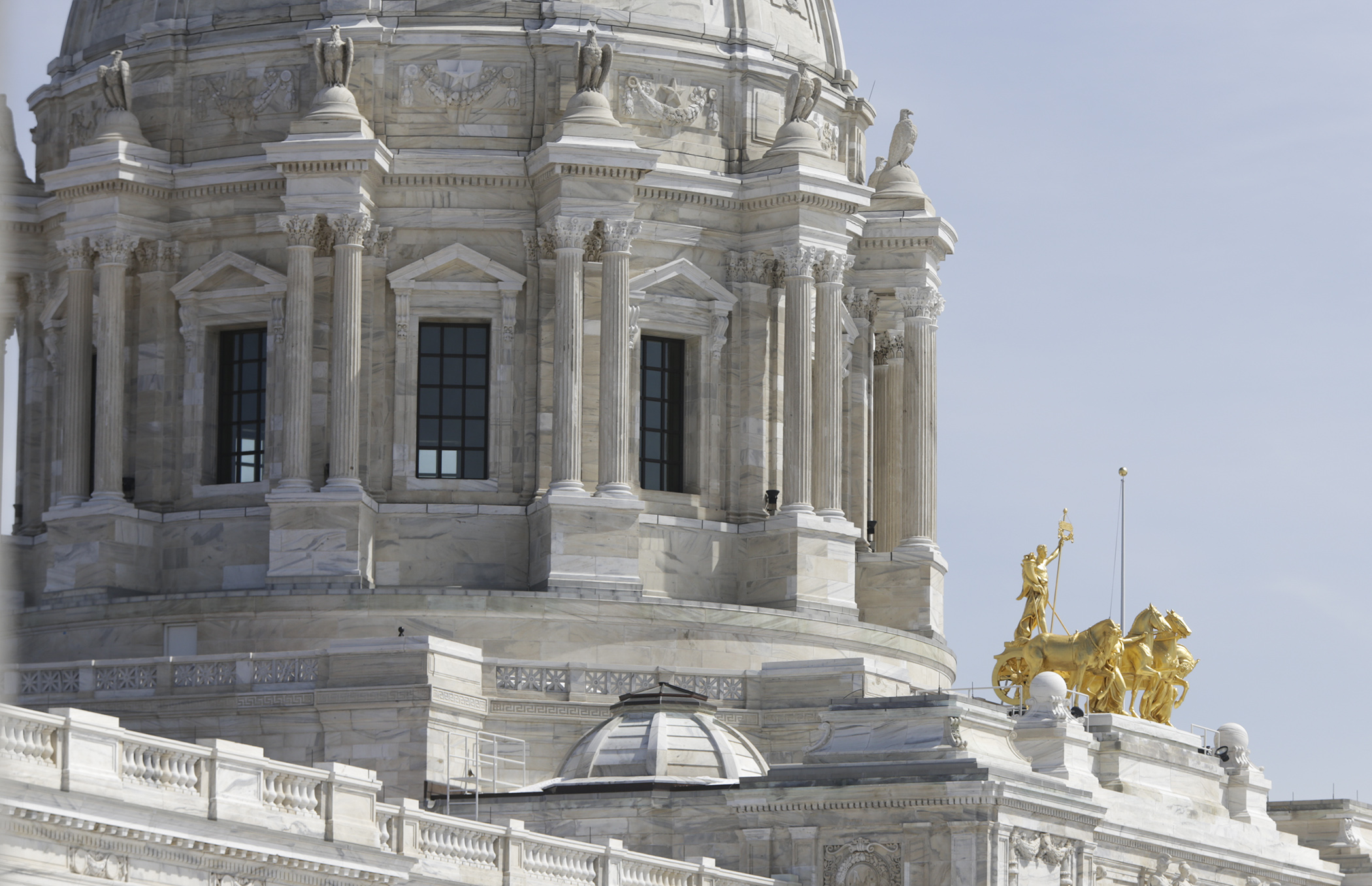House committee approves omnibus tax bill with higher rates for high earners

Maybe members of the House Taxes Committee felt that they’d heard enough discussion about a new fifth income tax tier and tax exemption for PPP loans and unemployment benefits. Or perhaps those opposed to increasing taxes on multinational corporations and high-income Minnesotans felt that Senate Republicans will not allow such measures to survive the conference committee process.
But, for whatever reason, the omnibus tax bill met with only a modicum of resistance at Thursday’s House Taxes Committee meeting. Sponsored by Rep. Paul Marquart (DFL-Dilworth), HF991 was replaced by a delete-all amendment, approved on a 12-8 party-line vote and sent to the House Ways and Means Committee.
The bill is projected to raise $49.1 billion in revenue for the 2022-23 biennium and provide $4.2 billion in property tax refunds, aids and credits. It would leave $1.74 billion in the state’s budget reserve account and $100 million in the stadium reserve account.
Details of the bill were shared at Tuesday’s committee meeting.
Three Marquart-sponsored amendments were approved on voice votes Thursday.
One featured several technical changes, tweaks and corrections, while another had clarifying language about the budget reserve. The third deleted a section of the bill that referred to the American Rescue Plan recently signed into law. There has been controversy about whether federal money coming to the state can be used for tax cuts, so Marquart chose to eliminate the language, “just so there aren’t any future problems,” he said.
Other proposed amendments would have had no individuals or businesses pay taxes during a government shutdown and had federal taxes added to the state’s tax incidence study. Both were defeated on party-line votes.
Another would have deleted the entire bill and replaced it only with language to create an exclusion from gross income for forgiven Payroll Protection Program loans and a subtraction for unemployment insurance benefits up to $10,200. It was declared out of order because it violated the House budget resolution saying the bill must be revenue neutral.
But the proposed unemployment subtraction is in HF991, as amended, and the PPP exclusion is as well, but only for up to $350,000 in loans. Marquart responded to complaints from some Wednesday testifiers about that limit.
“I’ve looked at the PPP loans to businesses around the state,” he said. “Of restaurants that received loans, 91.4% will be fully exempt. Of beauty salons, 99% will be fully covered. For fitness centers, it’s 97.4%. This is taking care of our small businesses. … If they didn’t make a million dollars or more, they’re not going to pay these taxes.”
On Thursday, there was both praise and blame among members for the bill’s proposed creation of a fifth income tax tier at 11.15%, applicable to those individuals earning $500,000 or more annually, or $1 million for those married filing jointly.
Rep. Greg Davids (R-Preston) described that as a non-starter with the Senate.
“The last few days of testimony have been class warfare,” he said. “You have a lot of very good provisions in this bill, but I cannot go with the fifth income-tax tier. … It’s dead. It’s not going anywhere. I hope that we can come to a reasonable conclusion, but it won’t look anything like this.”
“When you’ve got to help people, that’s not a partisan thing,” Marquart said. “This provides over a billion dollars in tax cuts and aids to families and small businesses. This will give the average family a $500 tax cut. We know that the working family tax credit works and we’re adding $60 million to that. There’s also $30 million in property tax cuts for renters and owners, and $10 million for those with student loans.
“This is a good bill,” he said. “It’s going to make a difference in people’s lives. If they’re not a multinational corporation, they will benefit from this.”
The bill’s companion, SF961, sponsored by Rep. Carla Nelson (R-Rochester), awaits action by the Senate Taxes Committee.
Related Articles
Search Session Daily
Advanced Search OptionsPriority Dailies
Legislative leaders set 2026 committee deadlines
By Lisa Kaczke Legislative leaders on Tuesday officially set the timeline for getting bills through the committee process during the upcoming 2026 session.
Here are the three deadlines for...
Legislative leaders on Tuesday officially set the timeline for getting bills through the committee process during the upcoming 2026 session.
Here are the three deadlines for...